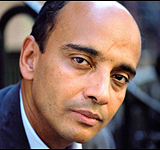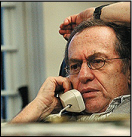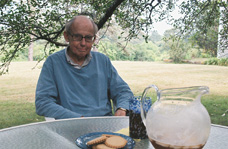Note: Philosopher Kwame Anthony Appiah, who writes the New York Times column, “The Ethicist”, has just won (in the summer of 2024) the Library of Congress’ Kluge Prize. A high honor.
This program was broadcast on WCAI, an affiliate of WGBH, Boston.
 In this interview from 2004, New York University Philosopher Kwame Anthony Appiah discusses cosmopolitanism on ThoughtCast!
In this interview from 2004, New York University Philosopher Kwame Anthony Appiah discusses cosmopolitanism on ThoughtCast!
Born in England and raised in Ghana, Appiah is half English and half African. And perhaps because of this, he’s fascinated with the concept of identity, and the power it wields over people. But rather than wage identity politics, Appiah encourages us instead to be good global citizens, interested in and accepting of each other. In short, cosmopolitan. But also, at least a little bit “contaminated”… Appiah’s written a book on the subject: it’s called Cosmopolitanism: Ethics in a World of Strangers.
Click here:  to listen. (42 minutes)
to listen. (42 minutes)
Podcast: Play in new window | Download
Subscribe: RSS

 The controversial Harvard Law professor, author and celebrity lawyer Alan Dershowitz talks with ThoughtCast about his book “Preemption: A Knife That Cuts Both Ways”, as well as his views on the Israeli-Palestinian-Hezbollah conflict, torture, human rights and our ‘war on terror.’ His premise: the world has changed, and international law must change with it. We need more tools, he argues, in the fight against terror networks whose recruits hold no fear of death or retribution.
The controversial Harvard Law professor, author and celebrity lawyer Alan Dershowitz talks with ThoughtCast about his book “Preemption: A Knife That Cuts Both Ways”, as well as his views on the Israeli-Palestinian-Hezbollah conflict, torture, human rights and our ‘war on terror.’ His premise: the world has changed, and international law must change with it. We need more tools, he argues, in the fight against terror networks whose recruits hold no fear of death or retribution.